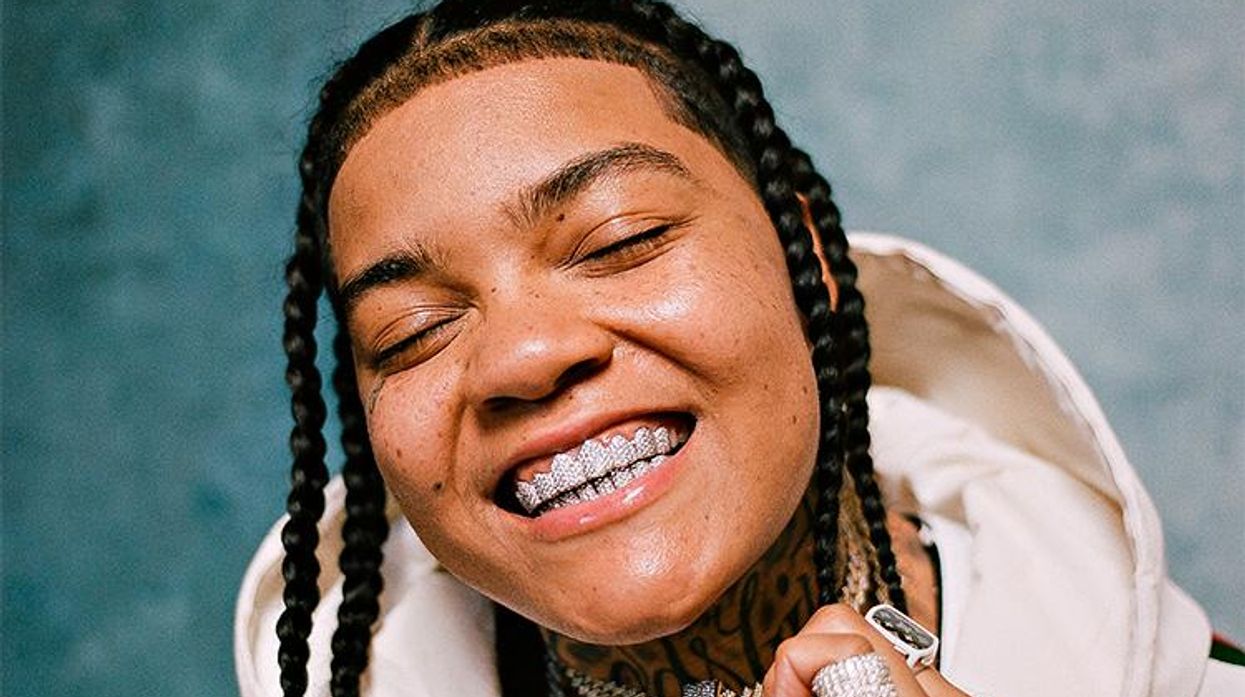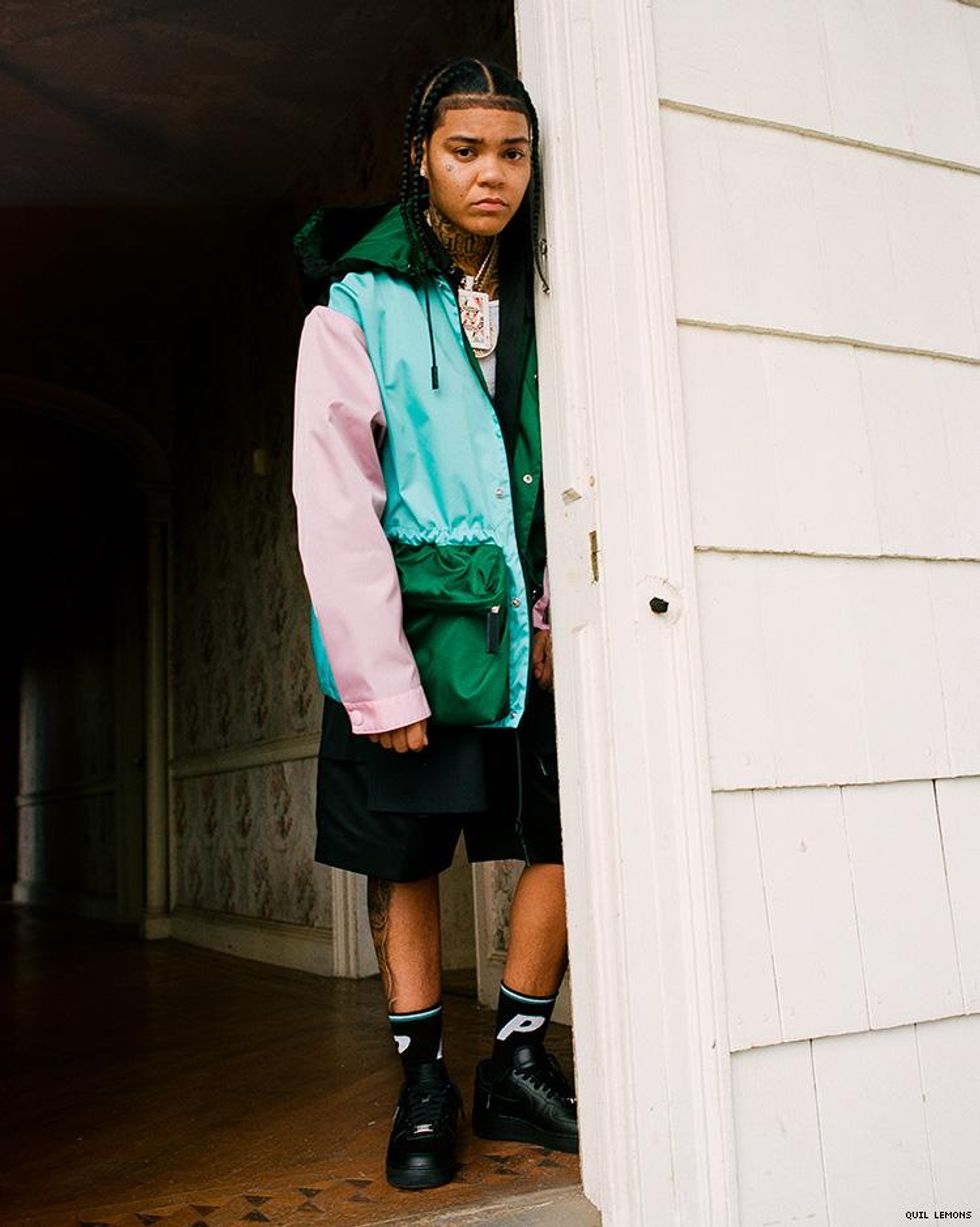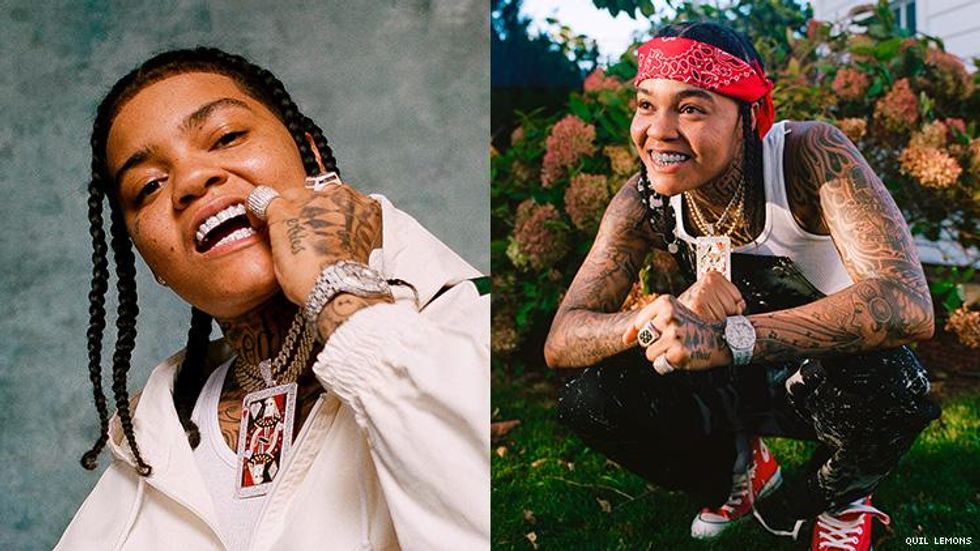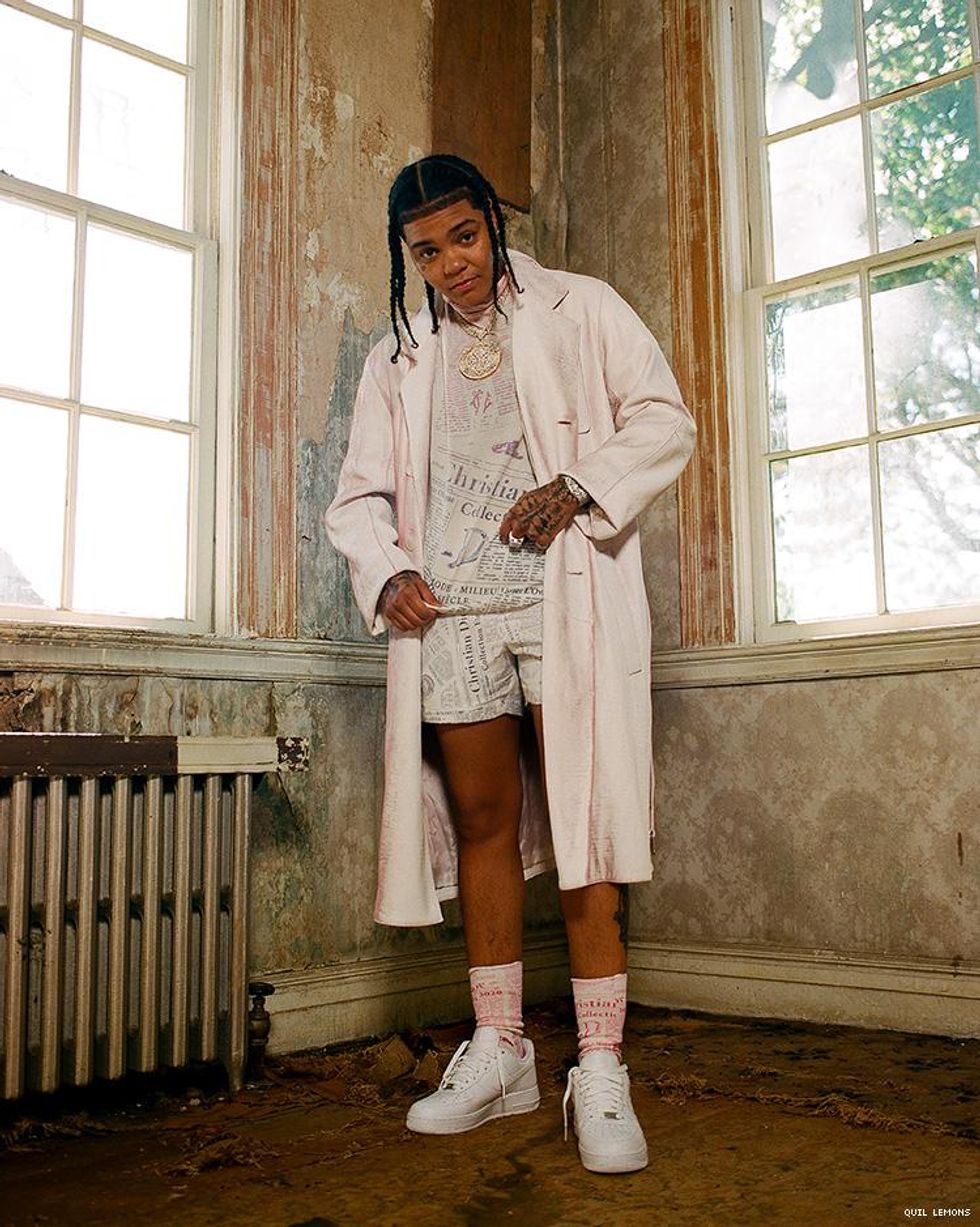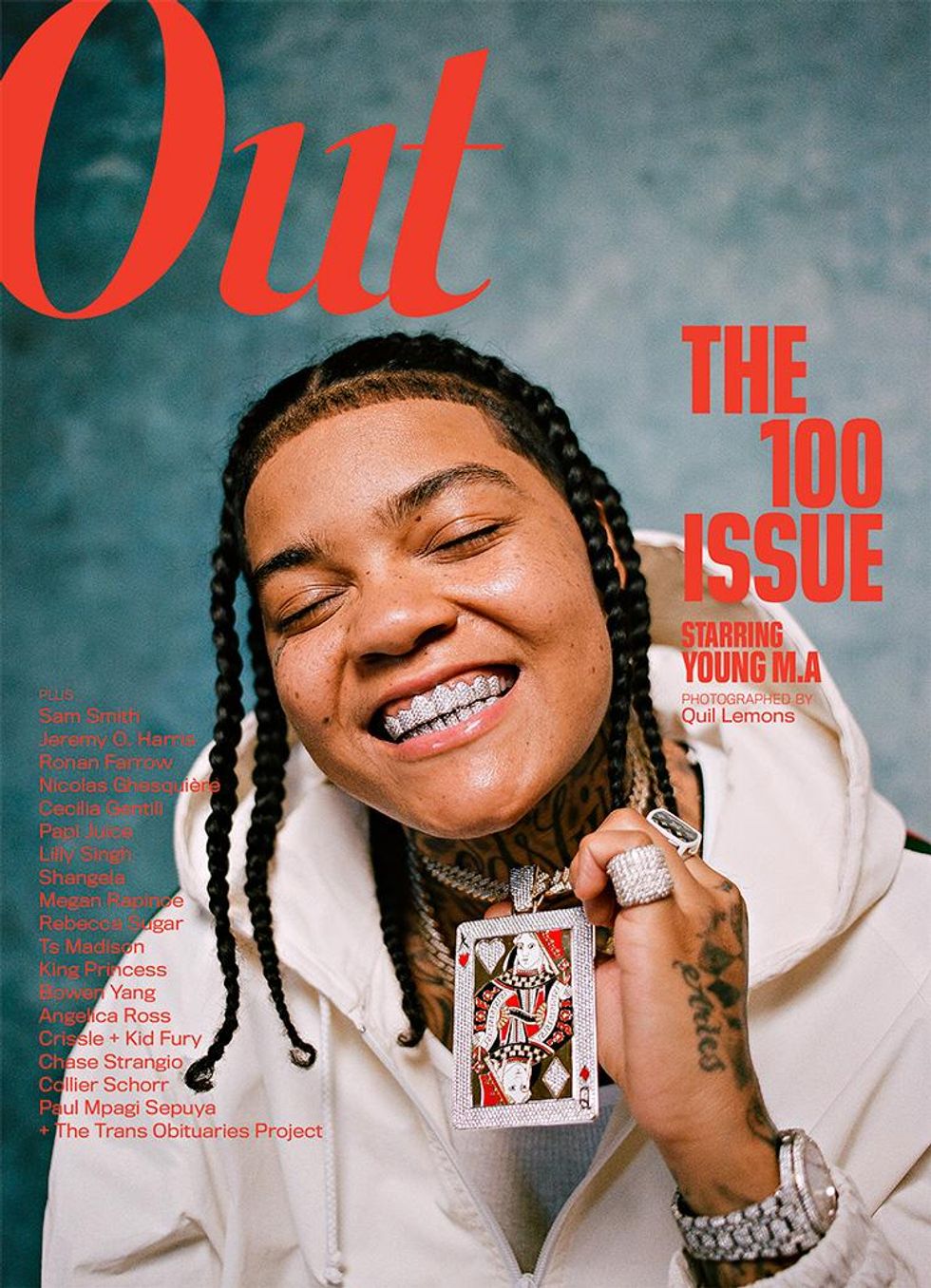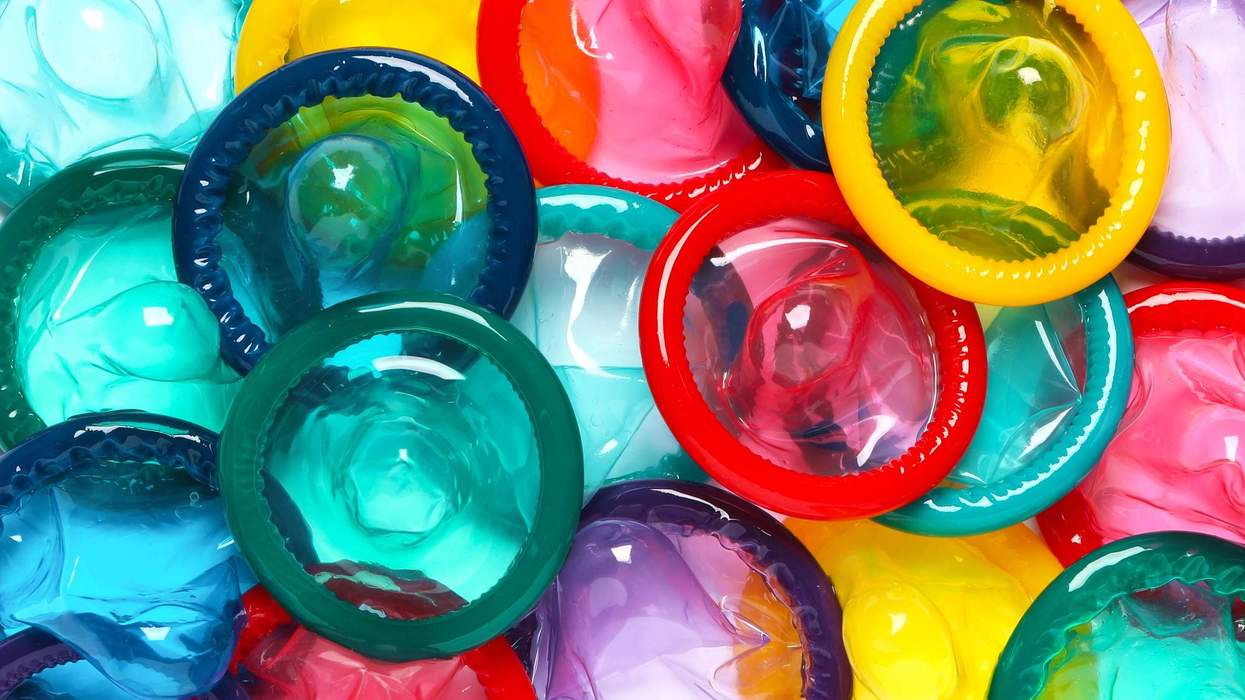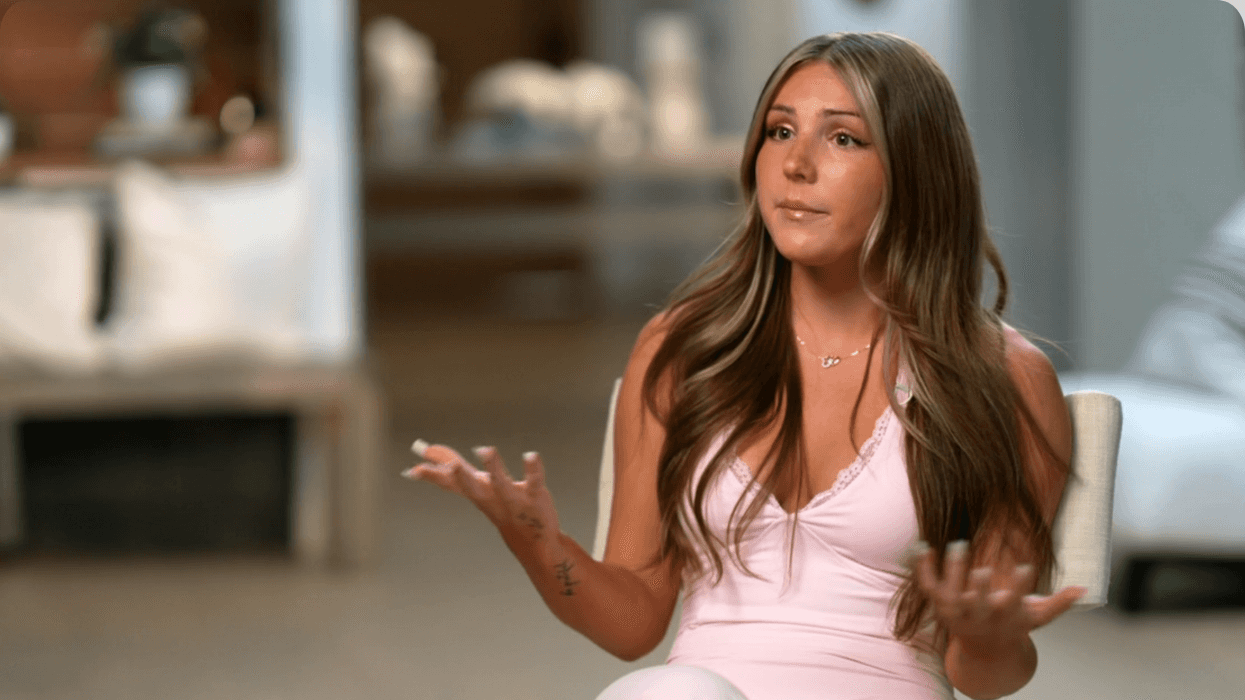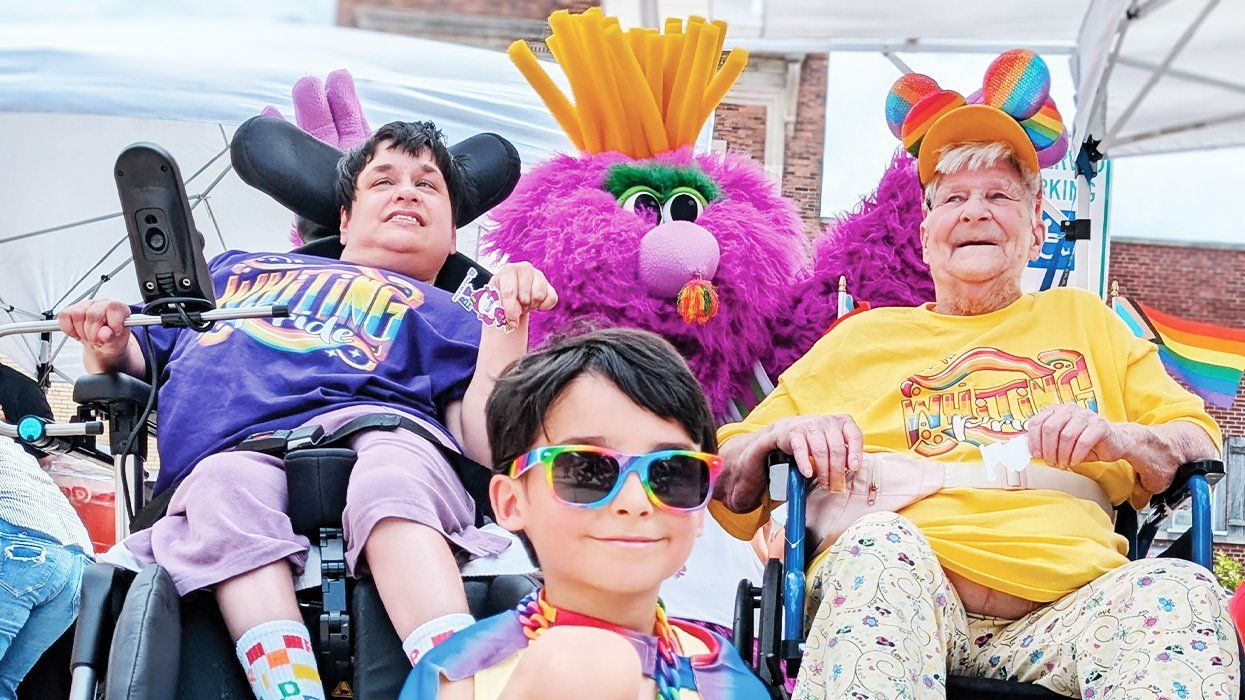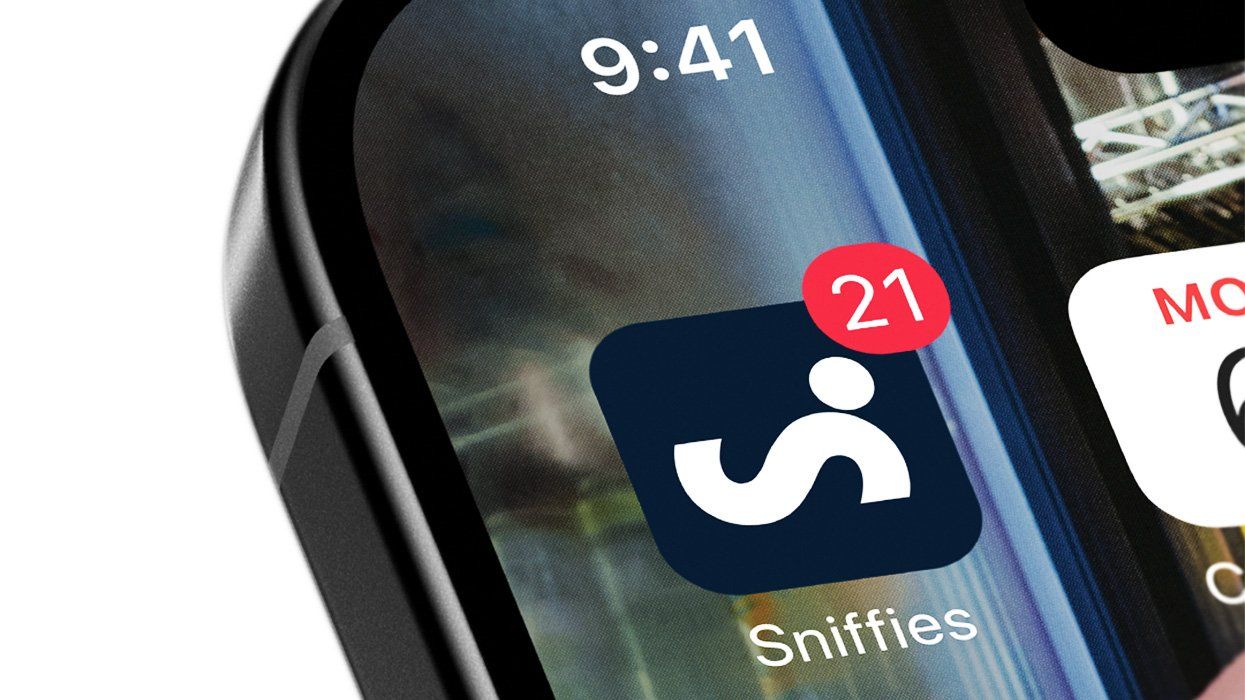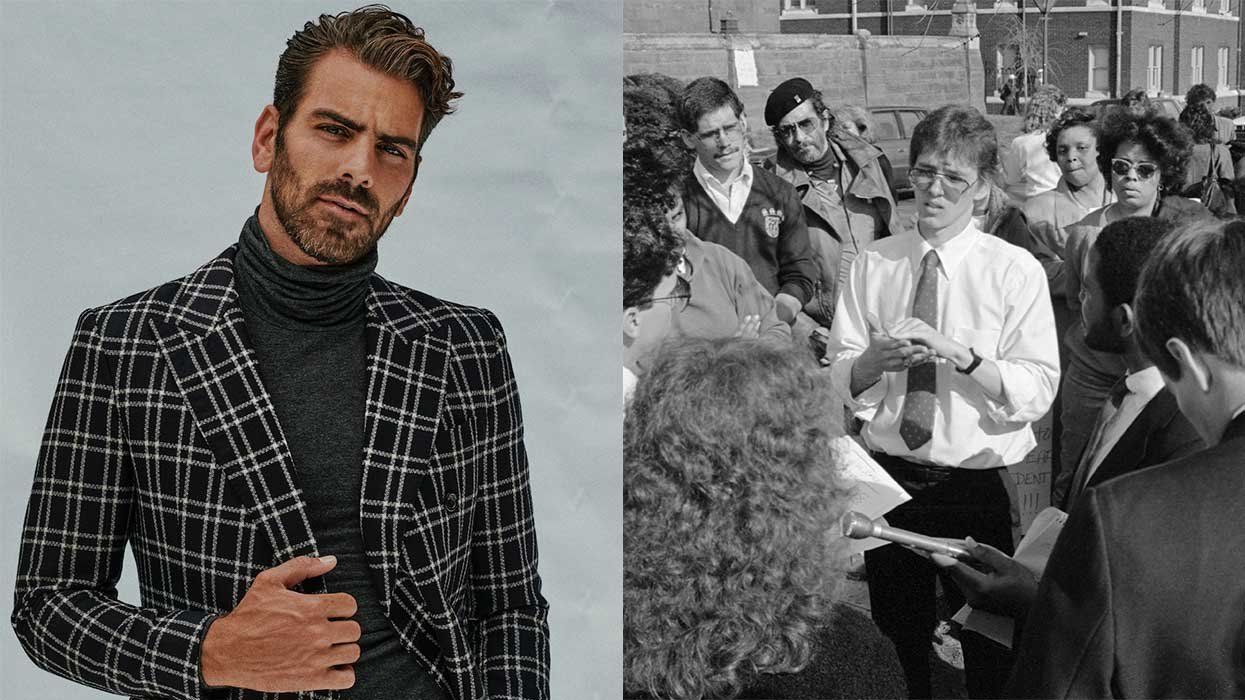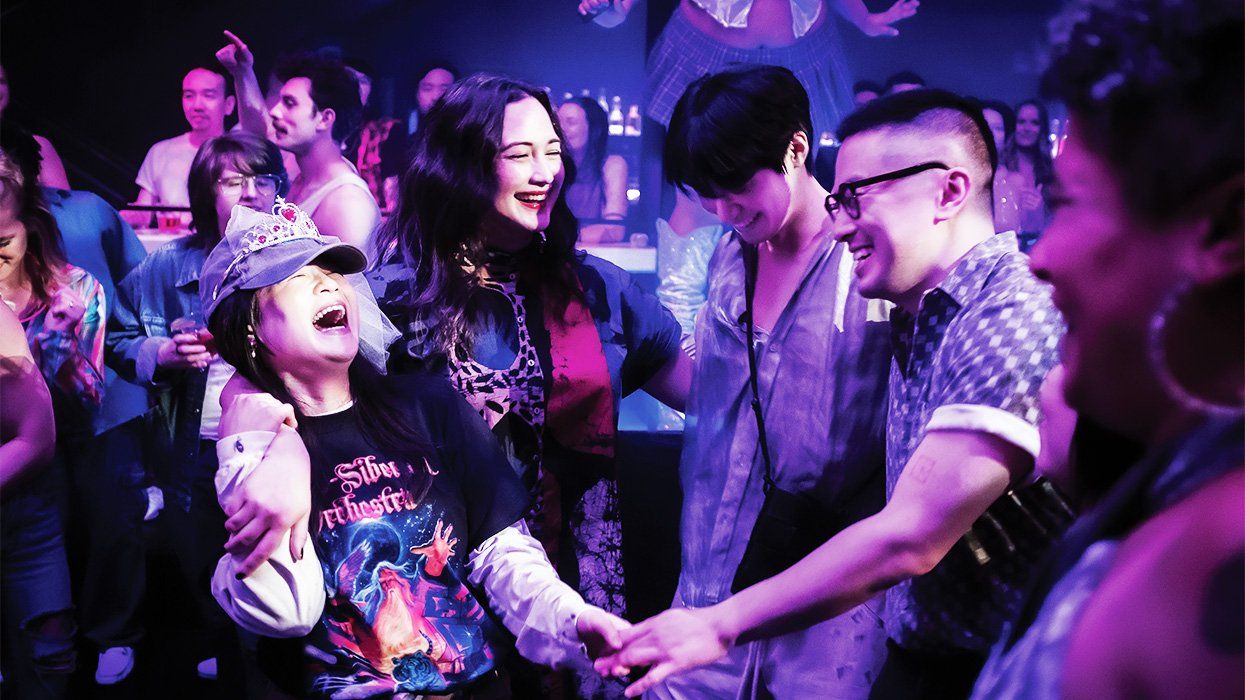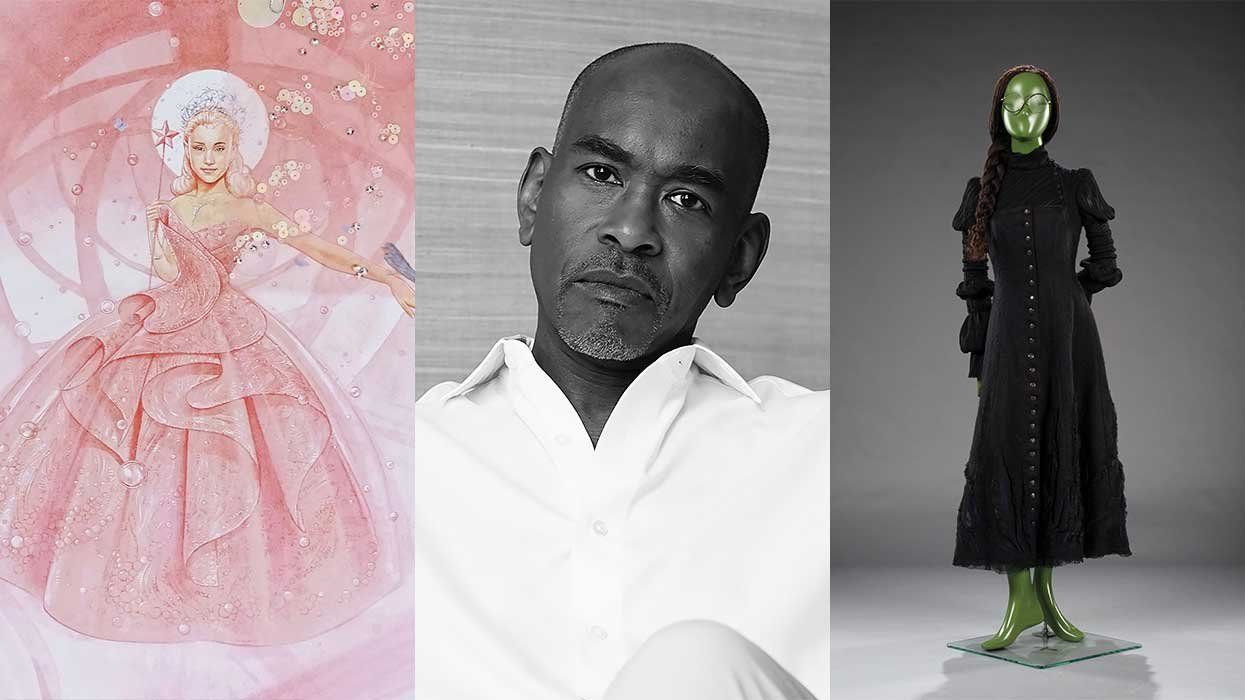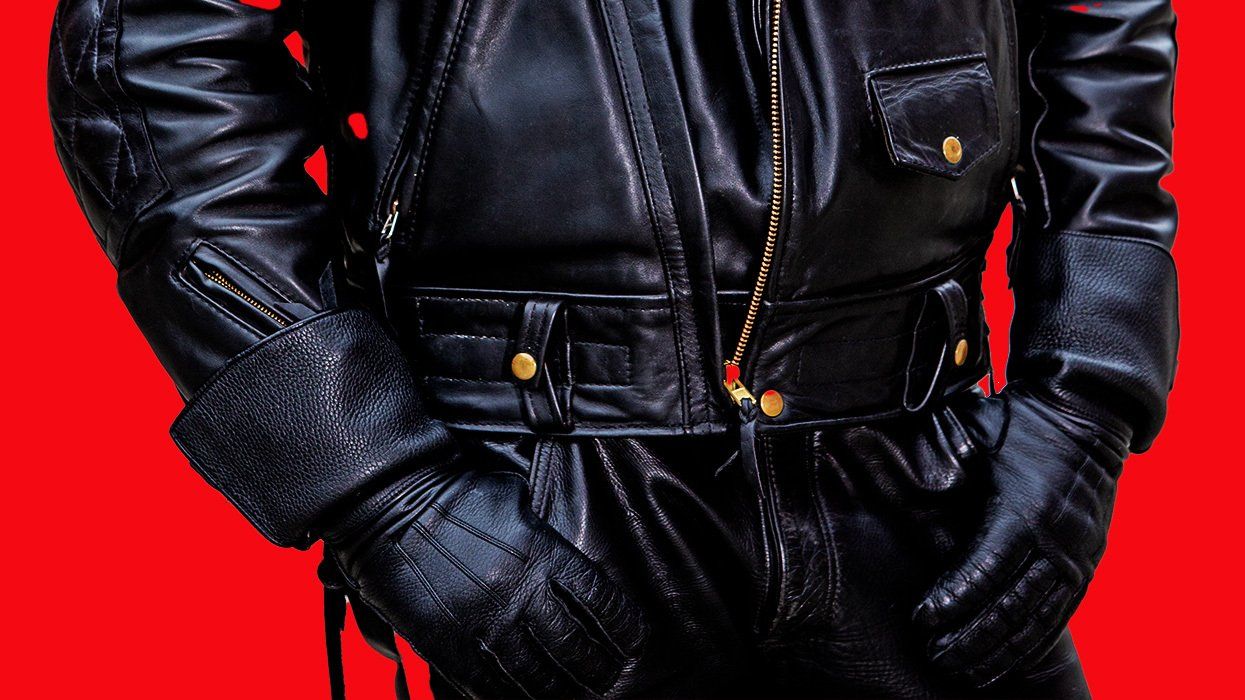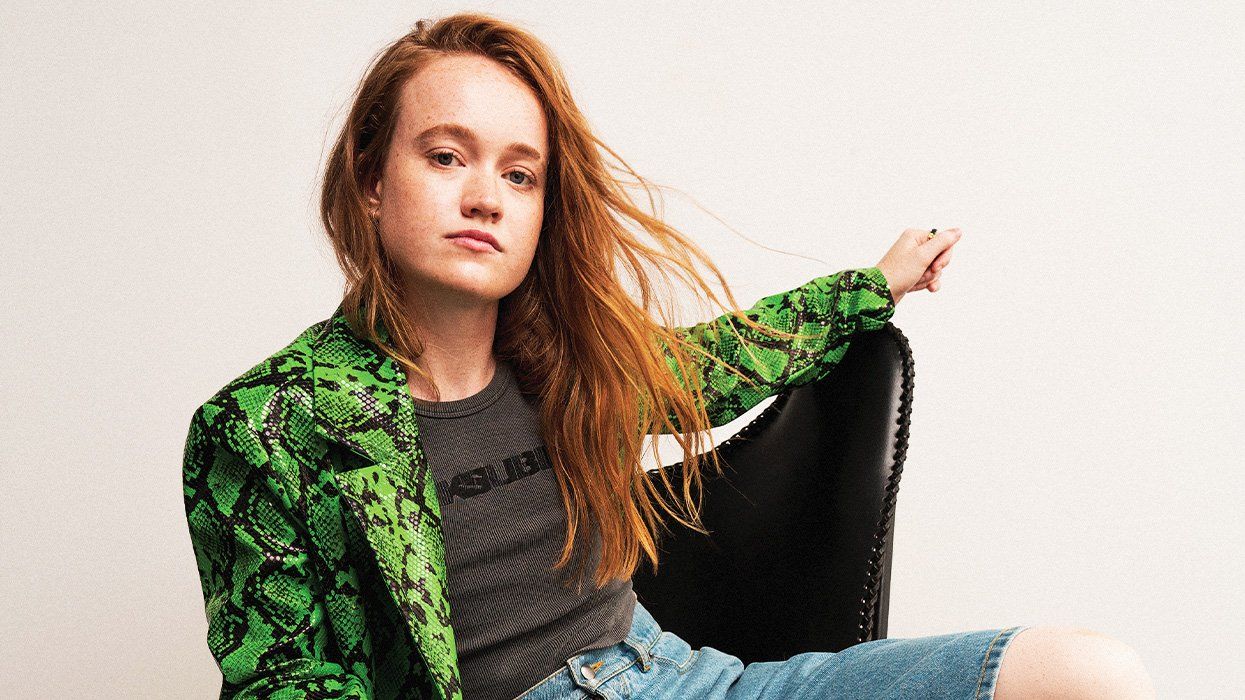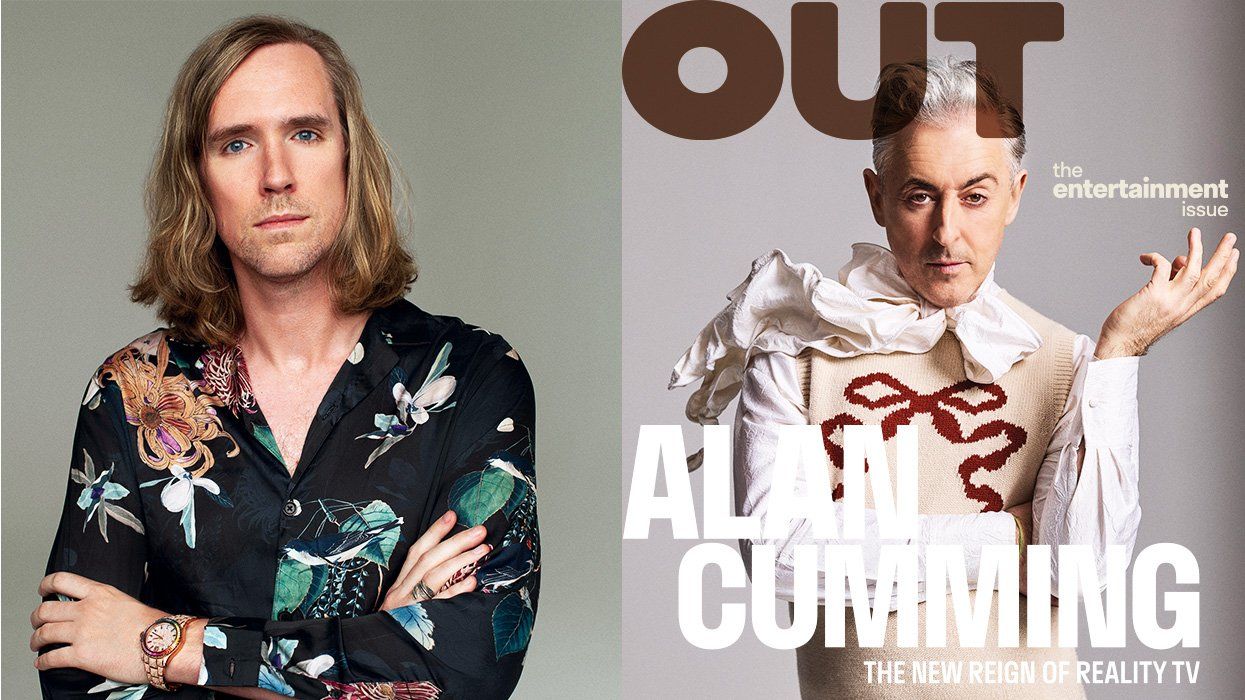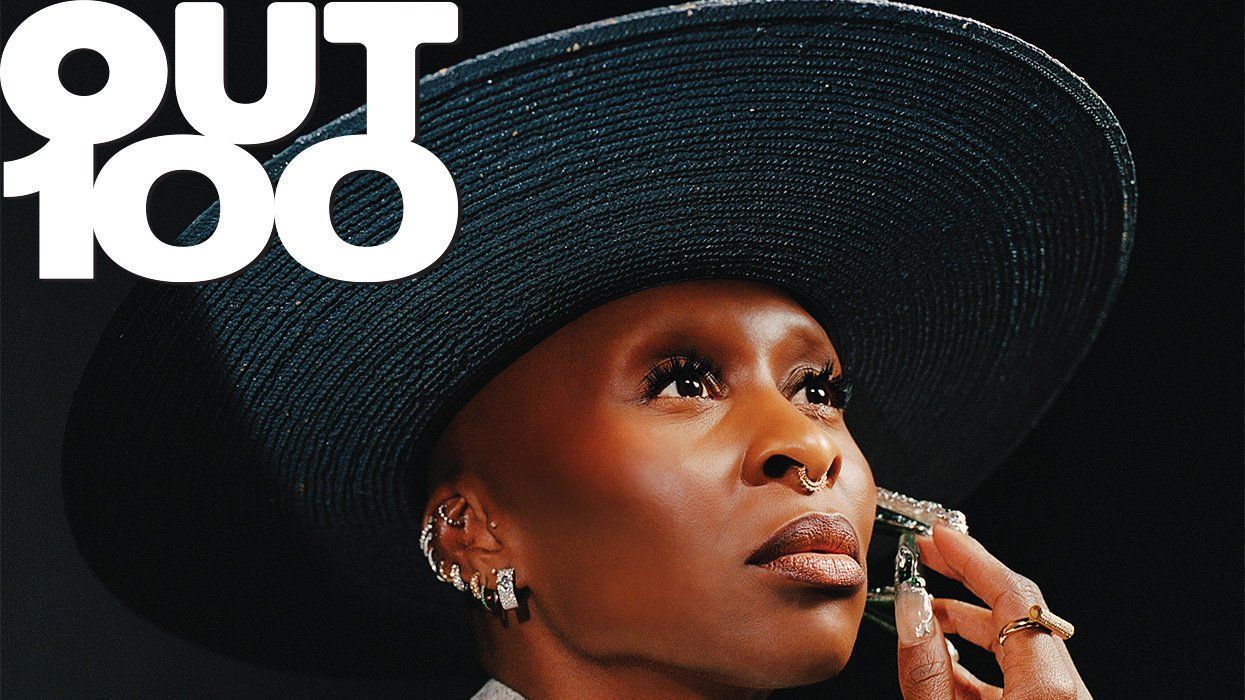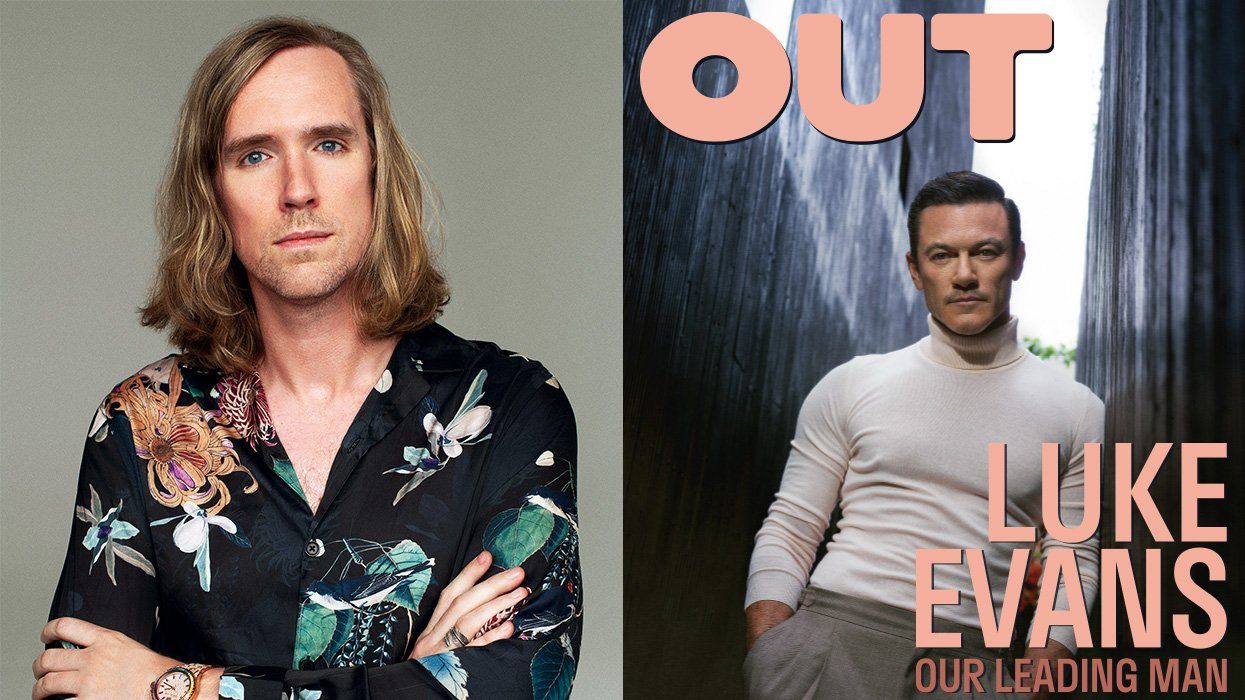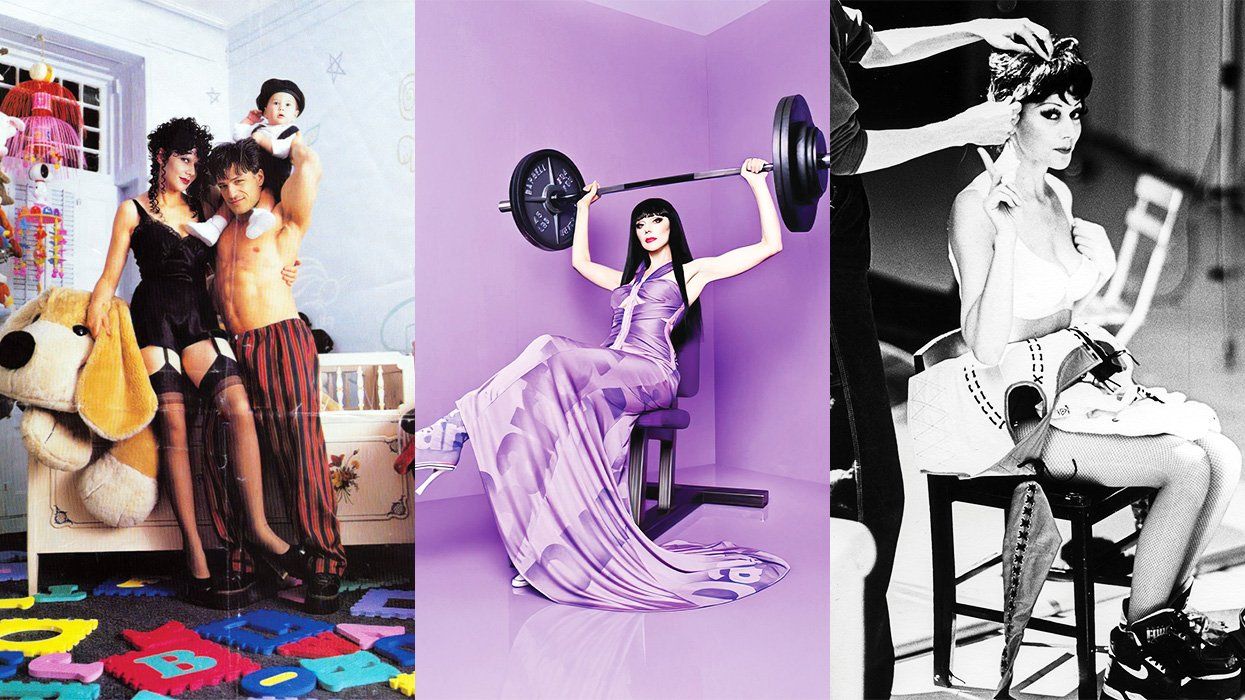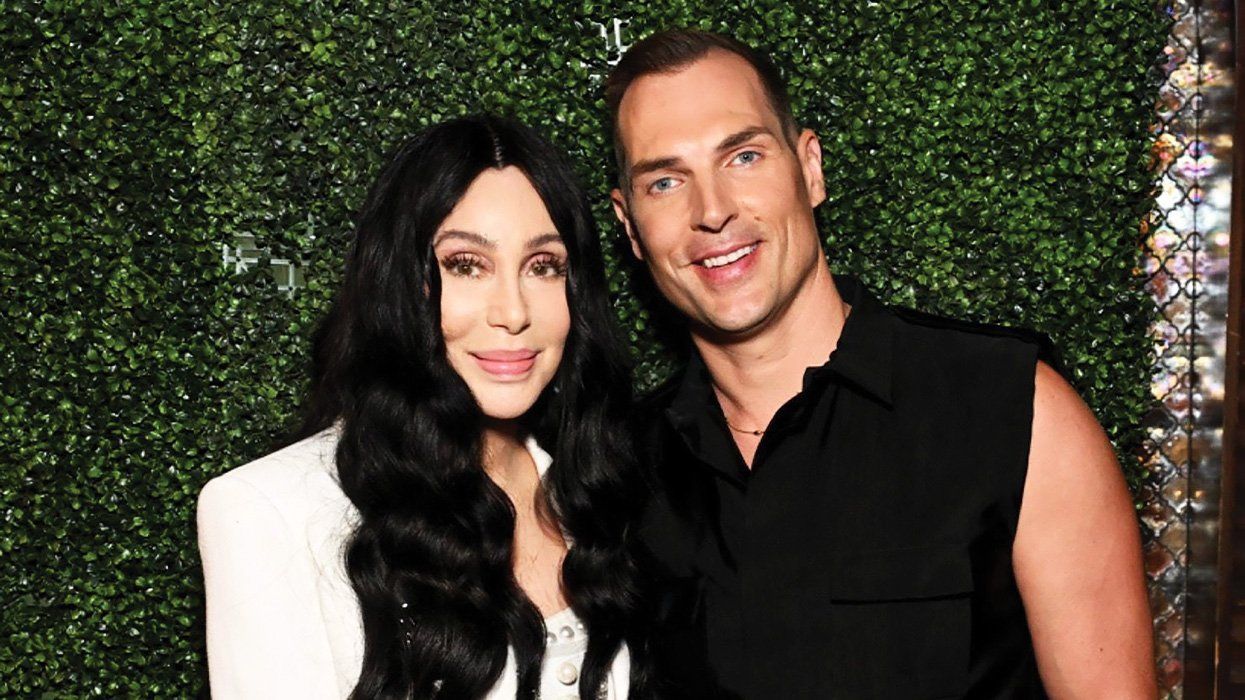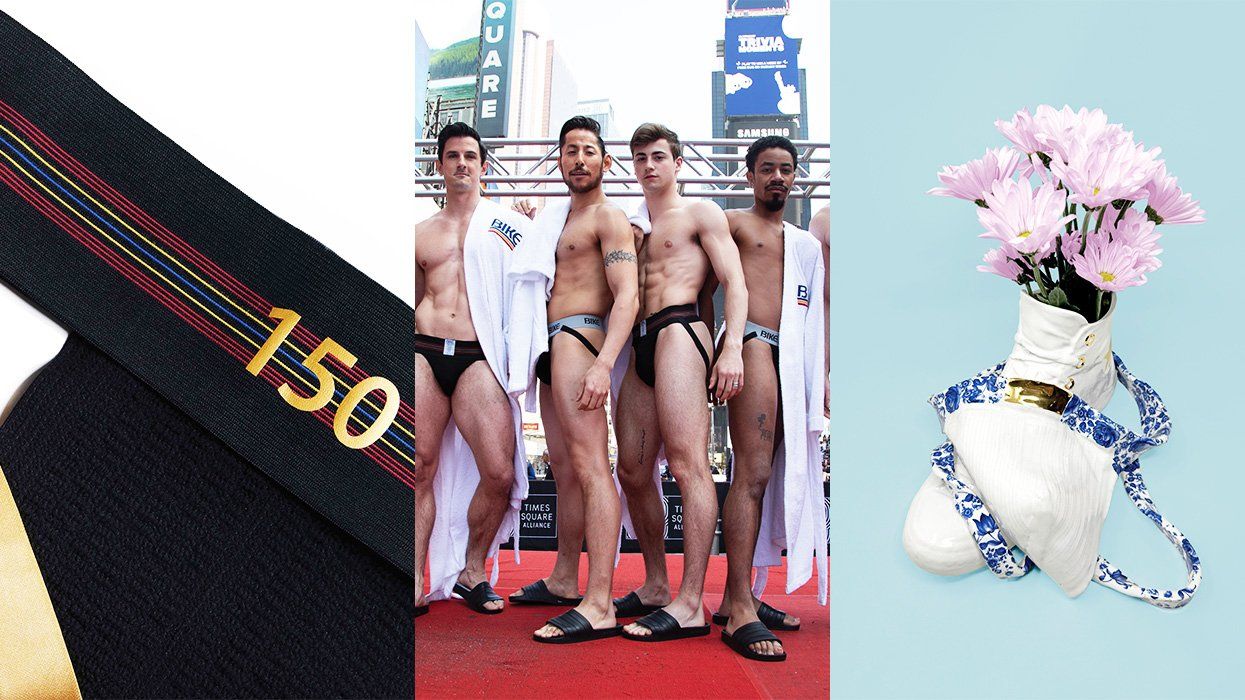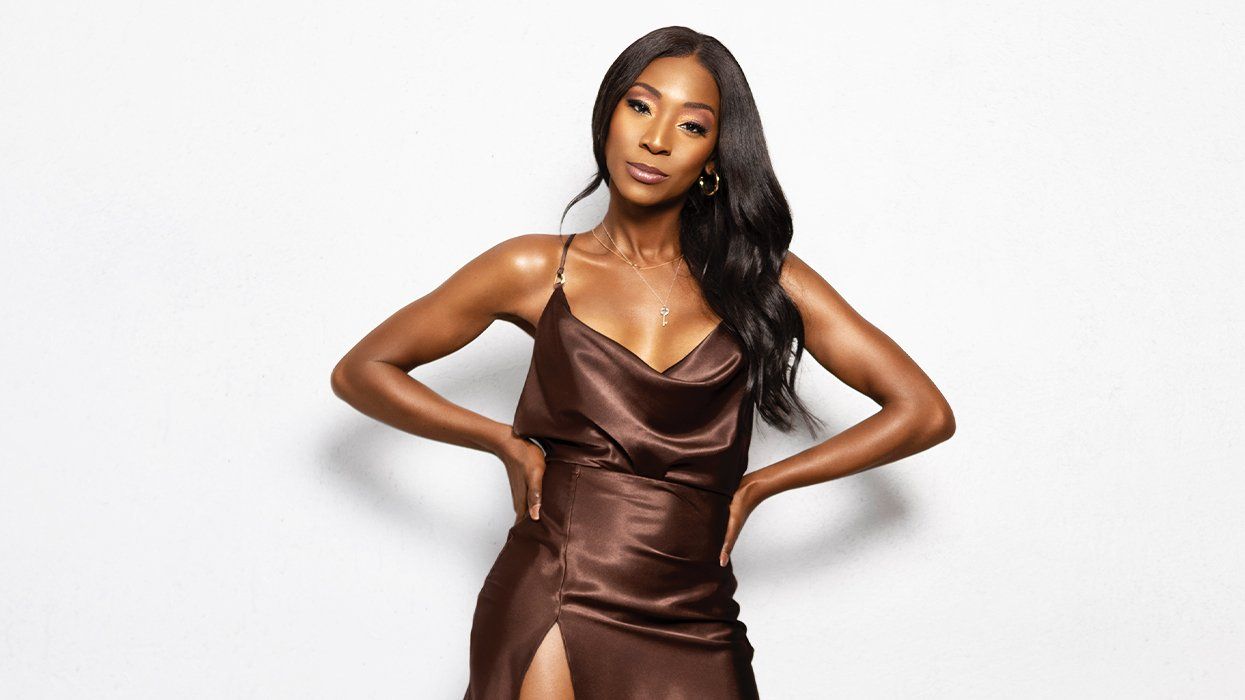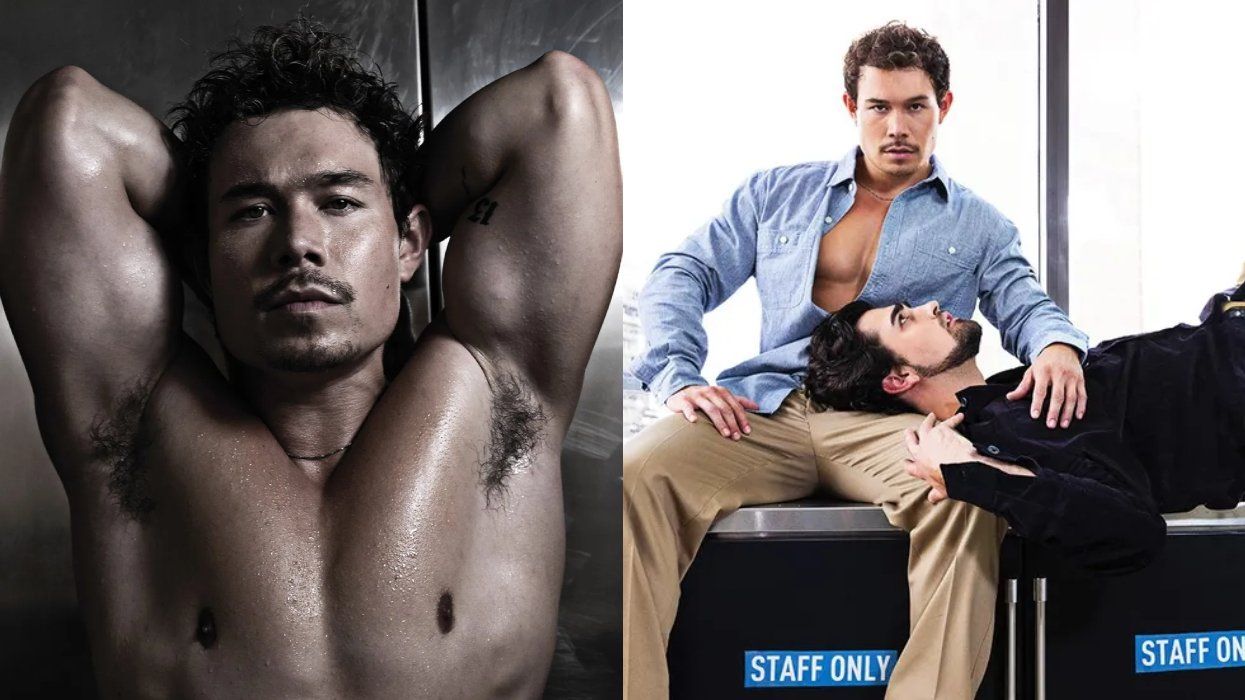Young M.A is a whole mood.
Dressed in a black Gifts of Fortune snapback, a red Since 1982 sweatsuit, and crisp Air Forces, she's all smiles, at once shaking the hands of every single person on set and marveling at the tattered carpet and wallpaper of the Hendrick I. Lott House. She's just walked into this preserved, white picket-fenced home in south Brooklyn, which was once a stop on the Underground Railroad. While so many others on set succumb to the eerie ambiance, M.A laughs, quite literally, in the face of fear -- an attitude for which she credits her late brother, Kenneth, who's part of the inspiration for her debut album.
"He's a big part of who I am today, why I'm so strong, and why I'm so unafraid of anything," she says. "Losing him really woke me up. That's when I really experienced life."
It felt oddly appropriate to begin our conversation this way, especially considering our setting. For the mostly Black staff staging the shoot, we felt an eerie reverence for the spirits of our ancestors who once hid in this house's walls, and under its floorboards. But such a spectral air was also imbued with a sense of wonder, uncertain reassurance, and levity made itself known, as it is want to do when two or three of us are gathered. Then there was the palpable anxiety swirling around--a different anxiousness than that which accompanies our typical photoshoots. Perhaps because we all know this one is different: An LGBTQ+ rapper on the cover of Out? One whose take-no-shit reputation and tough and tattoo-clad persona precedes her? This was an important -- if unexpected -- collaboration.
But Young M.A's familiar, old school hip-hop vibe sauntered in like a post-rain calm, hushing every other energy that came before her. Her quiet confidence belies a unique kind of intelligence, making it clear that the 27-year-old is spiritually covered, and keenly aware.
"I'm definitely a vibe person. I get vibes [from everything and everyone]," she says. "I always did, but I feel like since my brother died, he stays around me and makes sure [I'm good] because he knows what industry I'm in."
Open Door Policy
Jacket, shirt, and shorts by Prada. Socks by Palace. Shoes by Nike.
M.A, known to her family as Katorah, was born in East New York and grew up the daughter of a single mother who rapped. Naturally, music was always a presence in her home. "Mary J. Blige, Notorious B.I.G, a little Sizzla, a little Glen Washington, reggae vibes," she says. "When we came in the crib, that's what it was." Around the age of 10 in the early aughts, she started writing rhymes -- and then rapper 50 Cent debuted his smash album, Get Rich or Die Tryin'.
"I was like, 'Who is this? He is fire. And he from New York?'" she remembers. "That's what made me want to be a star. That's what made me be like, 'Yo, I want to be a rapper. I don't want to just write.'"
Her mother supported her interests, even buying a karaoke machine that M.A (which stands for Me, Always) turned into a makeshift recording studio using her closet. Her brother, Kenneth, acted as "the man of the house," and encouraged M.A to develop her craft. "He was my other half, somebody I grew up with, slept in the same bed [with] at times," she says. "We did it all. That was my everything."
When Kenneth was killed in 2009 in a gang-related incident, M.A was just 17 years old. The void he left behind shook her core, and she fell into a deep depression.
"When somebody really close to you that you love leaves the Earth, your innocence is no longer there," she reflects. "All this stuff that was fun and you used to see all the time becomes no longer, because now you know that death is for real." She got his name tattooed on her right bicep a year later -- "R.I.P Kenneth" in commemorative cursive -- so that he's always with her, in spirit and in truth.
"He taught me how to be strong," she continues. "And seeing [my mom] deal with this shit, it makes me [want] to be strong to make sure she's good. I don't let nothing rock because of that."
So by the time the world started taking notice of the emcee in 2014 -- following a viral Facebook post by a racially conservative commentator who lambasted her "Brooklyn (Chiraq Freestyle)" for encouraging "violent, negative, genocidal energy" -- M.A was beyond ready for her closeup.
"When I met her, she was very competent and very self-assured that she was already moving in the right direction, which she was," says Drew "Dru Ha" Friedman, co-founder of record label Duck Down Music who felt compelled to sign M.A, attracted to her confidence, lyricism, and cleverness. "That's what I felt, the aura of her...It came across so authentic and so clear that we were enamored by it on day one."
But M.A wanted to stay independent in order to maintain control over what she was already in the process of building. So she partnered with Freidman's 3D (of which Duck Down is the parent company) on marketing and distribution support alone. Then, she dropped "OOOUUU" in 2016, and her profile skyrotted. The track broke the top 20 of Billboard's Hot 100 (making her the first lesbian rapper to do so) and spawned remixes from the likes of Remy Ma, French Montana, and Nicki Minaj. She would go on to be nominated for Best New Artist at the MTV Video Music Awards in 2017. But so many people couldn't get past her butch gender presentation -- or her seductive bars about being deepthroated.
"I knew what I was going to trigger," she recalls. "They thought I was a boy...[and] I get why people think I'm a boy because I look like a little n*gga. It was like, 'Oh, this is a girl, and she talking about deepthroating? How, how, how?' I never felt like I needed to explain to anybody how I have sex. Take it how you want to take it. I do what I do when I'm in a bedroom."
This defiant message -- both about herself and her refusal to explain her sexuality to a predominantly cisgender, heterosexual audience -- bucked the expectations of palatability in which most commerical artists find themselves trapped. As a deeply refreshing counterpoint, M.A's message was abundantly clear: "I don't give a fuck. That's just me. I say what I want to say."
Her bravado, not atypical among most stalwarts of rap music, endeared her to many. "We always knew she had talent and was going to make it," says Kareem Tunstall, her close friend who has a shoutout on her album. "She was just different than everyone else. It was her grind and her passion, and when you have that and a set goal -- we just knew it."
Show Off
Left: Jacket and pants by Gucci. Ring by Louis Vuitton (middle finger left hand). Necklaces, watch, and ring talent's own.
Right: Overalls by SR STUDIO. LA. CA. Tank top by Calvin Klein Jeans. Shoes by Converse.
Back on set, Young M.A lounges on a pale, flower-patterned couch, her shoulder-length braids suspended in the air. She's relaxed, one foot on the ground, the other hanging. It's her domain. In confessing that she might be the first LGBTQ+ rapper to grace Out's cover (Lil' Kim covered the magazine in 1999), I ask about her initial response to the offer, a question that prompts a more alert shift in her posture.
"I was like, 'Hello!'" she laughs, before admitting that she hoped the focus of our story would not be her sexuality. The Brooklyn native stopped labeling her identity "a few years ago," but still gets asked for interviews most frequently when the media wants to talk about homophobia in hip-hop, or during Pride month.
"At first I believed in the whole identity thing," she says. "I just got to a point where I was like, at the end of the day, nobody can make no rules on what I decide to do. 'Yo listen, don't call me this. Don't call me that. I do what I want. I love who I love. I want who I want.' And I'm not the only one. There's a lot of people in this world who just choose not to identify."
"But then I was like, 'No. I get it. It's not [about] labels. [It's] expressing oneself. It's a magazine that shows your expression of who you are and what you represent,'" she adds, which pairs well with where she is in her life and career. Her recently released debut album, Herstory in the Making, which comes almost three years after "OOOUUU" and was released on the anniversary of her brother's death, is the perfect complement to this chapter of her journey.
"When you come into this industry, they so used to things being a routine of: drop a hot song, got to come up with another hot song, then come with an album," she says of the pitfalls that some viral hit-makers have fallen prey to. "I had to eliminate myself from that pressure, from the people that was just on my ass about this shit, and get back to the reason why I made music, why I was so passionate in my music. That's what made me have to fall back -- because I lost that."
The music landscape became "oversaturated with just a bunch of fake shit," she continues. "And I ain't understand it because I don't move like that. I don't have no excuse for it. I really just wasn't ready."
That, however, was then. Now, Young M.A appears more than ready, bringing a vintage hip-hop flair back to an industry chock full of staid lyricism, monotonous sounds, and dime-a-dozen abilities. Herstory in the Making is a massive (by 2019's standards) 21-track, autobiographical chef-d'oeuvre that tells her life story -- one of love and loss, trust and betrayal, struggle and survival -- in only the way she can. It's also been widely acclaimed.
"Young M.A isn't just one of the best rappers in her city, she's one of the best anywhere," reads her album review on Pitchfork. "Her freestyles have become epics. Her singles have become confessionals. In these structureless spaces, she's unleashed. Her verses feel undiluted and ceaseless; she seems inexhaustible, like she could rap forever."
"When I grew up on music...you had the bonus tracks, you had the intro, you had the outro," she says. "It was literally a full body of work. Nowadays people put out like seven songs and call it an album. And if you listen [to mine], every song is different. No song sounds the same."
It was that intention that allowed her to center herself creatively, and to make for her eager fans (she boasts over 5 million Instagram followers) an album that exists on a different plane than most of her contemporaries. "Competition looking for me / I was waiting at the top," she spits on the album's intro, "No Mercy." "But ain't no competition / Ain't no one in my position."
"They don't want that smoke," she tells me, only half-jokingly. "They just pit artists against each other, and definitely female artists, [and] it will become a beef if you allow it to get to you. I think a lot of female artists allow the people on the outside to get to them...because 'she hot,' or 'she was hot but now she hotter than her.' Me, I don't allow nothing to get to me. I will never elevate or move forward if I let the negativity pull me down."
One constant refrain on Herstory in the Making is about growth and learning.
"Who do I trust? Me, that's who / I do what I must," she raps on the album's outro "Crime Poetry." "I do what I love / You do what you lust. I don't do it for luck / I do it for bucks.
"I do it for blessings / turn my L into lessons. This is a message / I don't hear you haters, must be losin' reception."
When I ask her of some of those lessons, she harkens back to her brother's death.
"Don't ever let anybody take advantage of you," she says. "Don't just trust anybody, because my brother got killed by somebody he was cool with. So it just makes you feel like even people that say they love you, or are close to you, or that want to say they down for you, just still watch them. It's unfortunate that I had to learn that from that situation, but if I had to take something positive out of a negative, it would be that."
Extra, Extra
Jacket, top, shorts, and socks by Dior Men. Shoes by Nike.
Beyond the music, another positive that has come from the tragedy she and her family experienced is the Kweens Foundation, a nonprofit M.A founded with her mom last year that supports single mothers and low-income families as well as those who have lost their children to violence.
"Me and her had a talk and she wanted to do something, to put her energy into something to kind of take away from the pain that she's been going through and give back," she says. "It's for our people in low-income neighborhoods and [about] having an understanding about what people go through when their kids are in the streets [and they die or go to] jail. People will start to feel like they are alone, like my mom and me. I felt alone at times, even though I knew people who lost a significant other, like a brother or a sibling. But when you're going through it, you don't think about that."
"It was good to be able to come across people that went through the same situation, have understanding, and have people feel like just because we may be financially stable doesn't mean we don't have issues, we don't have pain, too," she continues.
This year alone, the Foundation hosted community events for Mother's Day and Back to School. They're in the planning process right now for a turkey drive to help families enjoy Thanksgiving Day. "We just want to give back to the community in any way possible," she says. "And it really just stems from just losing someone close and just coming from the bottom and making your way to the top."
And philanthropy isn't the only new venture in her life. In addition to plans to drop a video for every track on the album -- at the time of our interview she had already recorded five with 16 more to go -- the rapper is looking to make greater strides in the porn industry. Last year, she was commissioned by Pornhub as part of the company's ongoing Visonaries Director's Club series to write and direct a lesbian flick.
"I ain't going to lie -- at first I was like, 'Word? Me? Pornhub? Where did this come from?'" she laughs. But it was an experience she greatly enjoyed, and plans to "do it again, and again, and again, and again."
"It didn't feel like sex," she continues. "It was definitely work. I was literally talking to every woman, and I was kind of getting an understanding because I just wanted to know, 'How do you guys do this and do it so genuinely?' So besides me directing, I was literally talking to every girl and getting an understanding of the industry. I don't want to just come into an industry and act like I know it all."
M.A also teases that we may see her pop up as a professional actress shortly. Many will remember the headlines about her turning down a role on Lee Daniels' Empire in 2016, but she says acting has always been a goal. The Empire opportunity just wasn't the right one.
"I used to use my grandmother's camcorder and I used to make little fake movies with my brother and my little cousin," she smiles. "We used to act like we was little gangsters. I used to write the script. I was into that. It was just like rapping to me."
To wit, M.A is playing a character named "Peanuts" who has a three-episode arc on the current season of Mr. Robot.
"It's time consuming," she tells me of the experience or acting. "That's the only thing that's kind of like the downfall. It's not always scheduled. It's like you can come at a certain time and end up there forever -- and I'm not a patient person. But I do enjoy it once I'm on set. It's actually fun and cool to see yourself and you be like, 'Oh shit, that's crazy.'"
So the M.A brand is strong, she assures me, also teasing two artists she's signed and will be executive producing projects for in the new year. It's clear then that she's destined for greatness, and if there is a common thread to be traced through Young M.A's career so far, it's found within her instinct to fly above -- the haters, the drama, the temptation of easy money or fame, the shallow, entry-level conversations about her sexuality, and the traps of respectability that would compromise her edge. Her debut album wasn't just a meticulous, awe-inspiring work of art. It was also her opportunity to give "people an understanding" about who she is, where she's come from, and what she represents.
But it is also her biggest contribution yet to the larger rap canon -- one that has, up until recently, been exclusive of and alienating to contributions from openly LGBTQ+ folks. That's why the title of the album, Herstory in the Making, is so appropriate. "I'm not a rapper, I'm an artist," she quips on "Crime Poetry." "Bitch, do not confuse the art."
And just like that, we've officially been put on notice.
Photographed by Quil Lemons
Styled by Yashua Simmons
Hair by Hairbysusy
Makeup by Alana Wright using Dr Barbara Sturm at See Management
Nails by Gracie J for The Editorial Nail
Photo assistant: Denzel Golatt
Fashion assistant: Julian Mack
Location: NYC Film Locations
This piece was originally published in this year's Out100 issue, out on newstands 12/10. To get your own copy directly, support queer media and subscribe -- or download yours for Amazon, Kindle, or Nook beginning 11/21.


